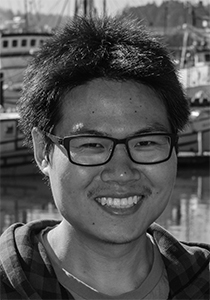
Jianghui Du is a most deserving recipient of the Harry Elderfield Award of the AGU Paleoceanography and Paleoclimatology section. Du’s Ph.D. work at the College of Earth, Ocean, and Atmospheric Sciences at Oregon State University exemplifies Harry Elderfield’s style, rooted in impeccable laboratory analytical skill, in creative application of geochemistry to important outstanding paleoceanographic problems, and in thinking anew about fundamental processes to overturn standard interpretations. Beyond his individual scholarship, Du is noted for peer mentoring of other students, again reminiscent of Elderfield’s generous collaborative style. The paper honored here by Du et al., “Flushing of the deep Pacific Ocean and the deglacial rise of atmospheric CO2 concentrations” (Nature Geoscience, 2018), opens a new window into understanding past changes in the abyssal Pacific circulation recorded by authigenic neodymium isotopes in deep-sea sediments. Du shows that for this tracer, where water residence times are relatively short, as in the deep Atlantic, conservative mixing dominates. But where water residence times are longer, such as in the deep Pacific, nonconservation driven mostly from chemical interactions with the seafloor dominates. By including both terms in quantitative models, Du explains perplexing data, resolves conflicts in geochemical budgets, and infers large variations in the deep Pacific circulation rate during the transition from glacial to interglacial conditions. His work further reveals a potential mechanism for flushing carbon from the deep Pacific to the atmosphere at the end of the last ice age. New thinking raises new questions, and these fresh insights will motivate further work. Du’s willingness to buck convention and think anew about difficult problems is worthy of celebration. We expect to hear much more from Jianghui Du as he moves beyond graduate school to a postdoctoral position at ETH Zürich, and we congratulate him on this richly deserved award.
—Alan C. Mix and Brian A. Haley, Oregon State University, Corvallis





